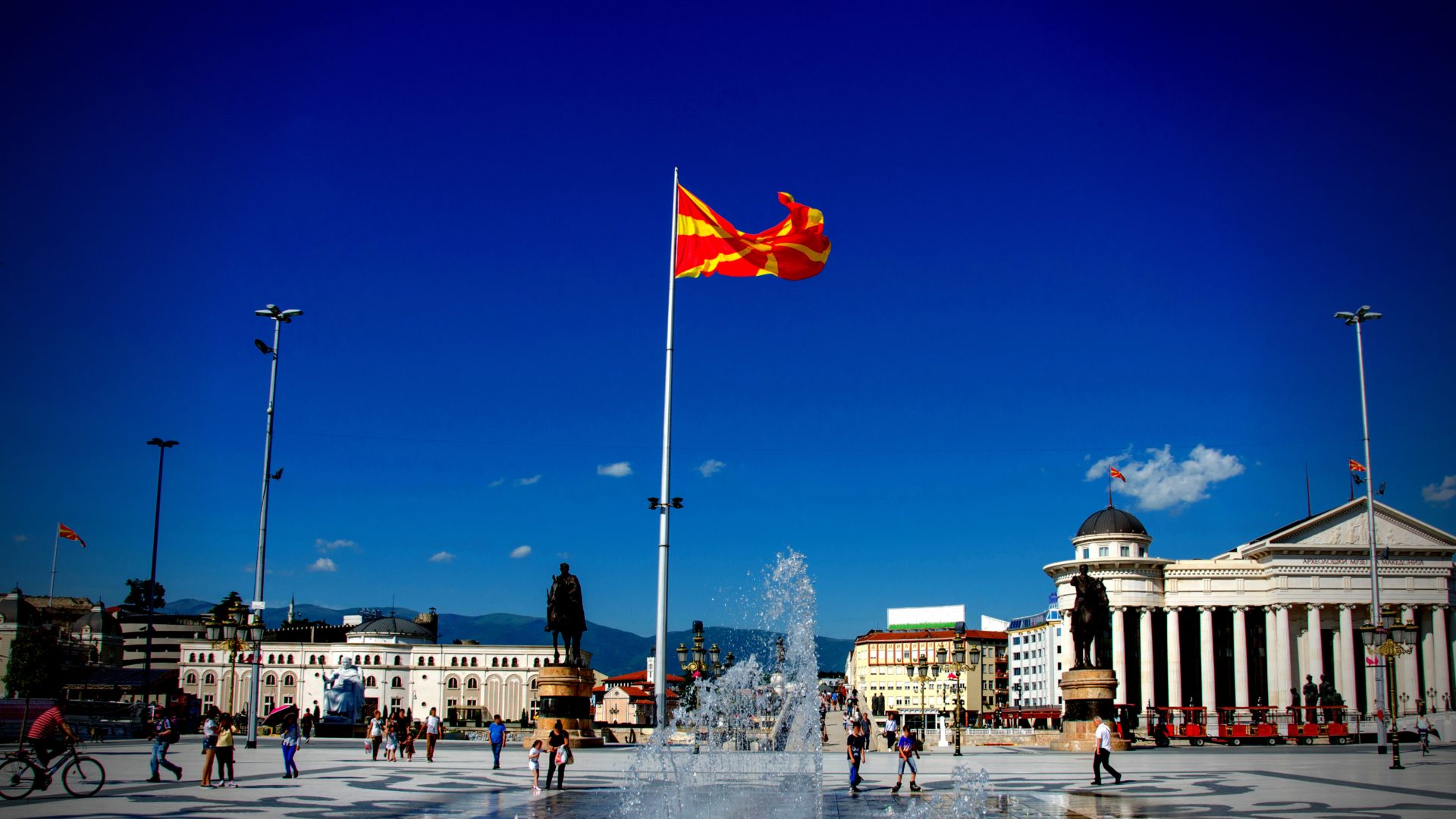

The Macedonian citizens cast their votes in North Macedonia’s presidential and parliamentary elections yesterday. The election day went smoothly. Under a well-administered electoral process, the losers congratulated the winners, displaying the nation’s democratic maturity.
VMRO-DPMNE earned a landslide victory, their presidential candidate Ms. Gordana Siljanovska Davkova becoming the country’s first female President. She completely outperformed the incumbent President Pendarovski, winning 65% of the vote to his 29%, with a turnout of 47,5%, well over the minimum constitutional threshold, despite DUI’s attempts to undermine the outcome by flirting with the possibility of boycotting the second round of the presidential election.
Similarly, with a turnout of almost one million voters or 55,36% in the parliamentary elections, the coalition led by VMRO-DPMNE had a landslide victory with 43,2% of the vote, securing 58 seats of the total 120. The Social-Democrats suffered the worst loss in their history, winning only 15,3%, about one third of the vote compared to their main competitor. Although they received more votes than DUI’s “European Front” coalition at 13,8%, due to the country’s electoral system they became the third political force in Parliament with 18 seats, one less than DUI with 19. The ethnic Albanian opposition coalition VLEN won 13 seats with 10,7% of the vote. The new political movement ZNAM and Levica (the Left) shared the rest of the mandates, each winning 6 seats.
Based on the statements of the party leaders, the most likely governing coalition will be the big winner VMRO-DPMNE, together with VLEN and ZNAM, controlling a comfortable majority of 77 seats.
The transition of power may not be as smooth as the election day itself. DUI’s Ali Ahmeti, in power for over two decades, asked whether VMRO-DPMNE’s overwhelming victory means that DUI will not be part of the next government, cryptically alluding to North Macedonia’s need for stability and future, in effect equaling his party’s place in power with the stability of the state.
The reasons for this tectonic political change in the country are complex. The outgoing government failed to deliver accountability and justice, a key promise behind the mobilization of citizens that brought them in power. The political capital invested in the Prespa Agreement was not rewarded by the EU, initially because of France, followed by Bulgaria’s indecent demands, making the Union complicit, at least on this issue. The so-called French proposal that the government accepted in 2022, designed to unlock North Macedonia’s EU accession, has been perceived as unbalanced and is strongly opposed by a huge majority of ethnic Macedonians, increasing Euroscepticism and poisoning the European narrative. As a result of the broken promises, according to a recent IRI opinion poll, only 34% of the citizens believe that the EU is serious in its intention to offer membership to Western Balkan countries. Last but not least, the perception that the ethnic Albanian DUI has been punching above its weight and number of votes, becoming a dominant coalition partner in the government, also played a role in the outcome.
The prospects for systemic changes and fundamental reforms closely depend on the ability of the citizens to remain engaged beyond election day, as well as the credibility of EU’s enlargement policy. It remains to be seen whether the VMRO-DPMNE-led government will manage to successfully navigate the process severely burdened with bilateral disputes, to say the least. Firstly, despite the electoral rhetoric and its criticism of the Prespa Agreement with Greece, it will be wise for the government to adopt a stance similar to that of their Greek EPP partner, New Democracy, in Athens: We don’t like it, we could have done better, but pacta sunt servanda. Secondly, a solution must be found together with Bulgaria, so as to both unblock North Macedonia’s EU accession, as well as to completely turn around the current lose-lose dynamic in the Macedonian-Bulgarian relations. The polls indicate Bulgaria as the biggest perceived threat, followed by Russia in second place. With such a strong political legitimacy of the next government, mere pressure to overcome the hurdle of the constitutional amendments conditioning the second intergovernmental conference with the EU will not do.
VMRO-DPMNE will need to show that they have improved the balance of the current package and made the European accession journey more predictable. With good will and mutual respect befitting two neighboring European democracies, this is perhaps not an impossible task. It is however much easier and, sadly, more likely to create an even bigger mess than to solve the existing one.